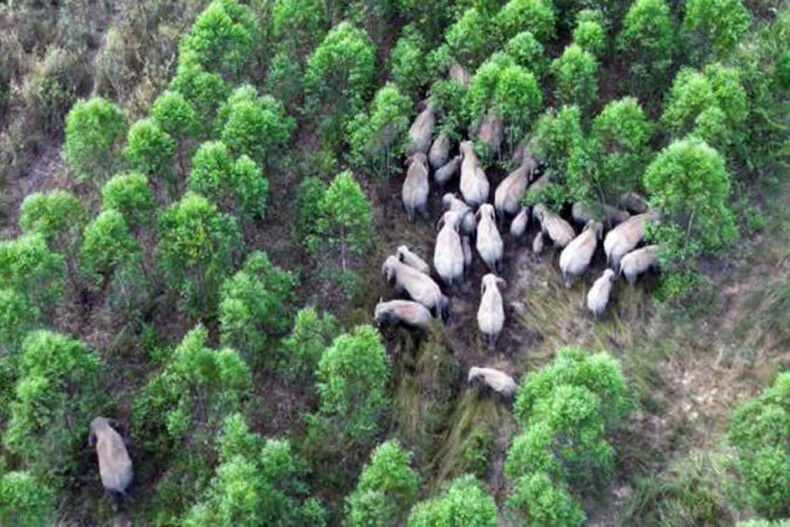Thailand plans elephant contraception to curb human-wildlife conflict

Thailand’s Natural Resources and Environment Ministry has announced a plan to use contraceptive injections on wild elephants to manage their population and reduce human-elephant conflicts. Chalermchai Sri-on, the minister, has directed the Department of National Parks, Wildlife, and Plant Conservation (DNP), along with other relevant agencies, to implement this strategy as part of the ministry’s efforts to control the wild elephant population.
Thailand currently hosts at least 4,000 wild elephants, with an annual birth rate increase of 7 to 8%. Projections indicate the population might reach 6,000 within four years, a number that poses challenges given the country’s diminishing forest areas.
The escalating numbers have had serious consequences; since 2012, wild elephant attacks have resulted in the deaths of at least 240 people and injuries to 208 others.
The DNP is preparing guidelines for this population control approach, with a pilot test scheduled for elephants in border forests in the eastern region set to commence next month. If successful, the initiative will be expanded to other regions.
“The population control initiative is aimed at reducing conflict between the wild animals and communities, which leads to sustainable and harmonious living between humans and wildlife,” remarked Chalermchai.
Atthapol Charoenchansa, the director-general of the DNP, stated that in collaboration with the Centre of Elephant and Wildlife Health from Chiang Mai University’s Faculty of Veterinary Medicine, the department plans to administer SpayVac to wild elephants. This contraceptive shot, designed for female elephants, provides birth control for up to seven years without affecting the elephants’ behaviour or physical traits, merely adjusting their hormone levels to prevent conception.
The efficacy of the shot was demonstrated when it was administered to seven female elephants in April, reportedly without any adverse effects, reported Bangkok Post.
“[The initiative] can help keep hundreds of people [living by forest land] safe while conserving the wild elephants,” Atthapol expressed.
Latest Thailand News
Follow The Thaiger on Google News:


























